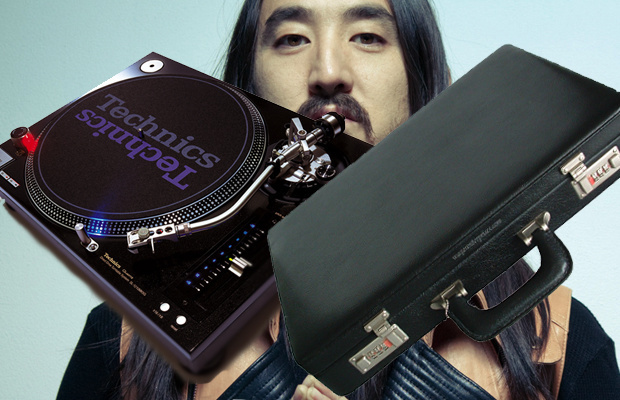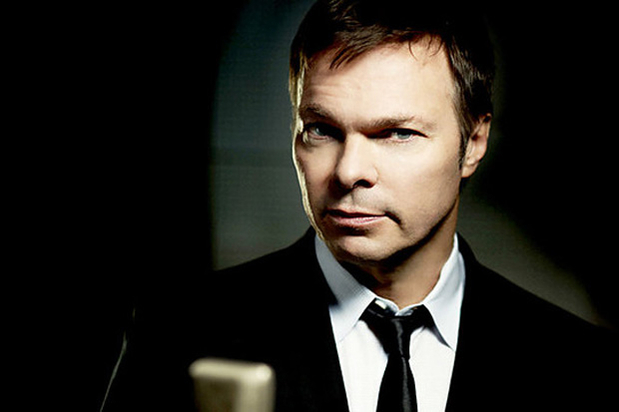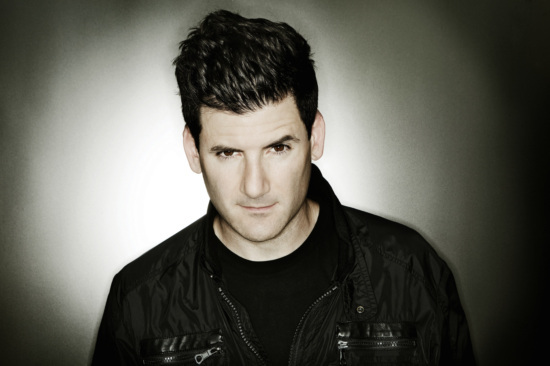With Forbes listing the highest paid DJ’s in the world, and artists charging obscene costs for tables on New Years Eve, we all know who is getting ‘paid’. Not the literal meaning, but the Birdman and Lil’ Wayne meaning of getting ‘paid’; a.k.a guap, scrilla, mad benny’s, whatever lingo tickles your fancy. Certain artists are making millions while others are making moves, and millions. Jemayel Khawaja of Thump, Vice‘s latest news outlet for ‘everything electronic’, recently published an article discussing the evolution of four individuals within the ‘scene’, depicting the entrepreneurial prowess that led each to their rightful standing within electronic music.
Pete Tong starts the list off garnering a great pseudonym: The Tastemaker. Tong has done it all in the past twenty years and it’s this very ability to keep himself current that places him on the list of successful entrepreneurs. As an intricate figure during the explosion of acid house during the early ’90s Tong moved forward with the state of electronic music to the position that many recognize him for today, the man behind the ever-important Essential Mixes.
Initially Pete Tong was a music journalist who then moved into a position as a radio DJ. From there he became involved in event promotion where he oversaw the production of famous events such as The Beach, Human Traffic, and It’s All Gone Pete Tong. Today he operates the Essential Selection based out of Los Angeles and is involved in countless other projects and ventures.
“When Napster started in 2000-2001, that’s when the record business stopped being the biggest business in the world. A lot of DJs that were principally earning money from making music were suddenly not… no advances, no big checks for remixes. It all became a live model. The electronic space was forced into that thanks to the Internet. It’s progress. It’s evolution.”
This progressive approach and understanding of evolutionary tendencies kept Tong tapped to every faction of electronic music. A key point of the original article is that of a diversified portfolio, if you will. Tong is so immersed that he can quickly adapt, no matter what decade or subsequent trend is spreading.
If you have a solid understanding of business, than you probably understand the notion of branding. Second on the list receives another proper title: The Brand. Steve Aoki‘s background plays an interesting, yet less than fundamental role in the artist and Dim Mak CEO’s rise to stardom. In brief, Aoki and his six siblings are benefactors to the well know Benihana restaurant chain, kind of. Apparently after a failed attempt to gain access to their fathers fortune, four of the siblings were sued…by their father. If that isn’t tough love than please, someone explain what is.
Without all the flying shrimp and vegetables Aoki has managed to maintain an economically balanced and healthy lifestyle. He started Dim Mak Records in 1996 while receiving a major in Social Sciences at UCSB and today performs 250 plus nights a year. It was not until 2008 though that Aoki took a shot at being a DJ professionally when he released his own electro-mix. Technically his abilities as a DJ were well enough above others to perform, and his stage presence, well that has never been questioned.
Interestingly enough Aoki has only released one album and 12 singles in his career, none of which have been produced solely by Aoki. Today artists are often accused of being detached from the creative process when it comes to track production, and with the obscene tour schedules it’s slightly unfair to knock any one individual. Essentially Steve Aoki epitomizes the theory of “playing the system”. In some capacity he has played a role in the establishment of the Dim Mak Studios venue, two Beverly Hills restaurants, a clothing company, and an artist management company. While his production and DJ skills may be questioned, nobody can doubt his work ethic and marketing abilities; his name is synonymous with cake, multi-layered, frosting covered, cake.
Moguls? Then lets talk about The Mogul: Gary Richards. Some may know Richards by his stage name, Destructo, and if not than maybe you’ve heard of HARD, as in all of the HARD Events. In the mid ’90’s Richards established himself as a top promoter by throwing after hour warehouse raves in Los Angeles titled, The Sermon. He and his partner would promote their event all night at clubs throughout LA and then open the doors at 6AM, usually playing into the afternoon.
Eventually Richards took a shot at the corporate level after passing along his budding EDC brand to Pasquale Rotella. At this time Richards obtained the best seats in the house to watch compact discs and the business in its entirety fold. Which may have been disheartening at the time, but luckily for us as fans, led Gary back to event promotion and consequently to HARD Summer, Haunted Mansion, as well as Holy Ship!!!. For kickers, he helped establish two of the most notable artists today, Skrillex and Dillon Francis.
Gary Richards continues to play his staple sets at HARD events, prepping all in attendance for the night’s festivities, but the future is what proves most intriguing. Just over a year ago Live Nations purchased HARD from Richards, and with no intentions of walking away from the scene, he now has fairly deep pockets to dig around in.
Lastly, but certainly not least, The Anthropologist: Diplo. Wesley Pentz was studying Anthropology at Temple University when he and DJ Low Budget began promoting the Hooked on Hollertronix parties in Philadelphia, but it was in 2004 that his career as a DJ, and producer, took off.
At Fabric in London Wesley met with M.I.A, soon after their collaboration for the Piracy Funds Terrorism Vol. 1 mixtape pushed both careers to escalate quickly. In 2007 Pentz co-produced M.I.A‘s hit, Paper Planes with Switch, establishing himself as one of the top producers across any genre. Upon the launch of Mad Decent it became apparent that Pentz had an inkling for various global sounds and flavors. Cue, Major Lazer.
However successful we perceive certain artists, there is never a clear indicator of an individuals business understanding until they either go belly up, or get stupid rich. Not to say Pentz didn’t know what he was doing, but it’s as recent as Bauuer’s, Harlem Shake, that showed Pentz the route to true monetary success for Mad Decent.
“Honestly, that record was the thing that saved the label, because a year ago we were going to fold because we couldn’t figure out how to make money. Then we just started giving music out for free and it worked out.”
The consistent theme within each of these individual success stories is adaptability, and probably even manipulation. Not manipulation in a malicious sense, but the understanding of how to slightly tweak the culture that each finds themselves immersed within. This is largely contributed to the fact that each of these gentlemen has held various positions within the music industry. They obtain a holistic understanding of the business that many artists today don’t have. No matter how much of a ‘banger’ a teenager makes, and regardless of how many weeks it sits at number one on Beatport, that alone doesn’t qualify someone to manage a multi-million dollar enterprise.
We hope.
@HapGrow












Awesome article man!